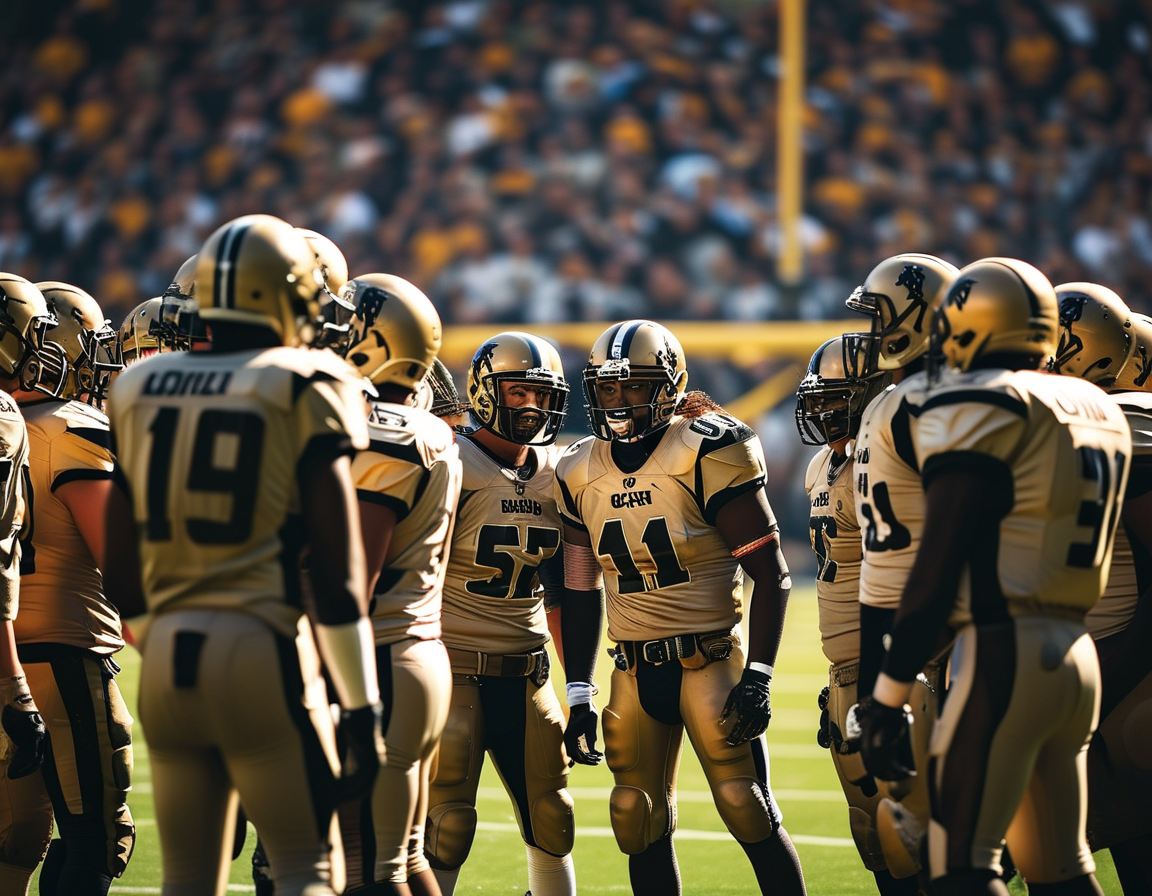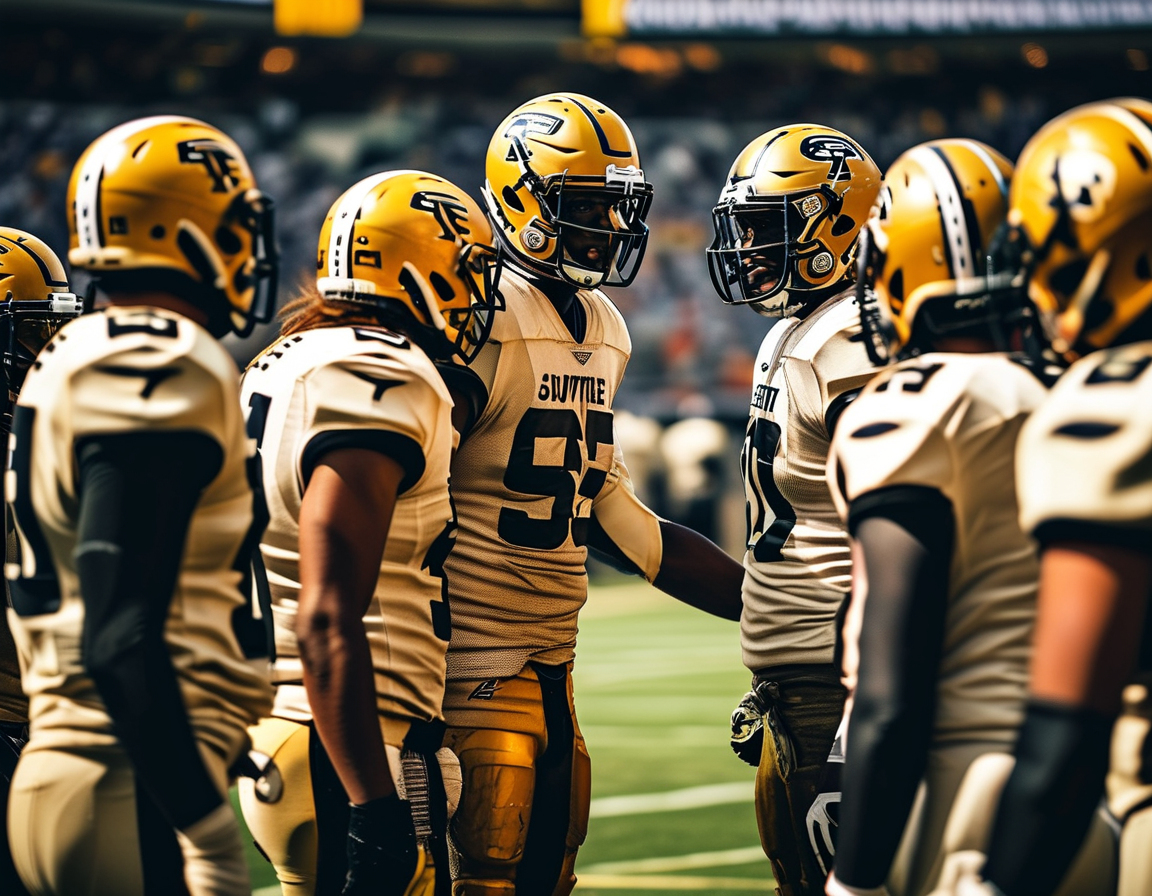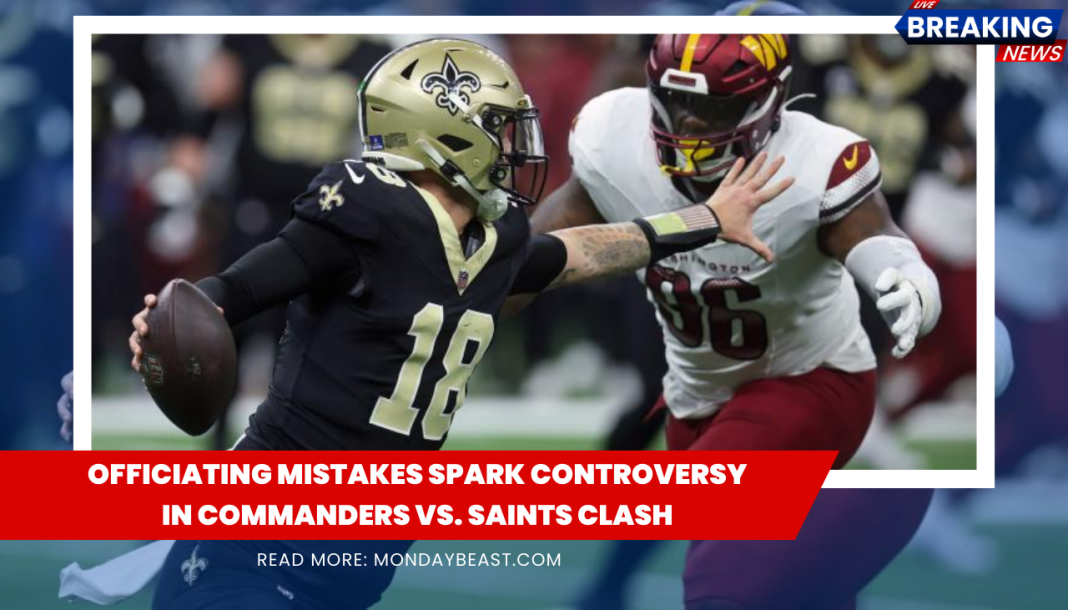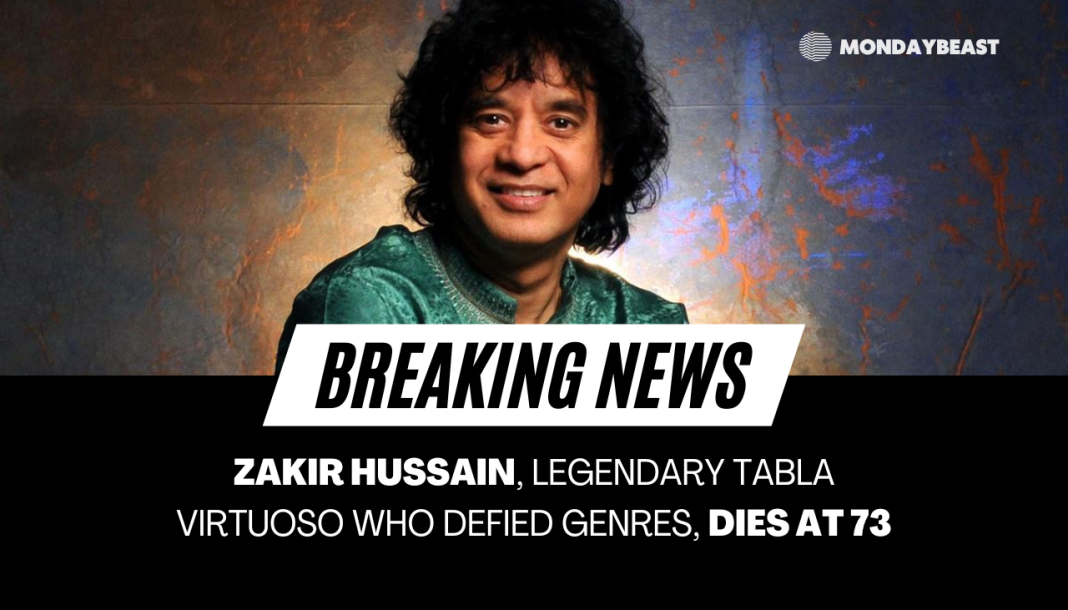In the adrenaline-soaked world of NFL football, games can turn on the smallest of details. This past Sunday, a critical officiating mistake sparked tension between the Washington Commanders and New Orleans Saints, leading to heated post-game discussions. With the stakes high, emotions ran even higher.
As the Commanders edged the Saints 20-19, they were left with a bittersweet taste. Coach Dan Quinn took a moment to reflect. ‘I am absolutely taking the high road,’ he stated after the game, maintaining a calm exterior. Yet, underneath that composed demeanor lay true frustration.

Quinn and the Commanders knew how crucial the clock’s mismanagement was. Time had seemingly slipped away in those final seconds, but the Commanders could celebrate their victory nonetheless. Their win kept them alive for the playoffs, as they clung tightly to the seventh spot. However, not all members of the team shared Quinn’s restraint.
Saints interim coach Darren Rizzi chose a different path. His frustration flowed freely, particularly regarding several off-field calls that he believed altered the game’s outcome. Rizzi pointed out how a single decision can shift momentum—and a season—quickly. He felt cheated by officials and the league.
As the final seconds ticked away, the Saints had a chance to tie the game. Quarterback Spencer Rattler had zero timeouts left. He was under pressure, but executed a precise pass to tight end Foster Moreau. The crowd held its breath as Moreau was stopped at the one-yard line.

What followed was a scramble. A sideline official signaled to stop the clock, and time seemingly froze. Did the officials realize the pressure? Or were they too caught up in the moment? The clock halted for about five seconds, a total that could mean everything.
The Saints hurried to the line and spiked the ball with just three seconds left. A breathless crowd erupted as New Orleans scored moments later. The question on fans’ minds: what game-changing decisions slipped through the cracks?
Referee Shawn Hochuli later confirmed the clock had… mistakenly stopped quite inexplicably. Up to that point, their officiating was paramount. ‘The covering official mistakenly stopped the clock in that situation. The clock should not have stopped,’ he explained. And just like that, a game was affected because of human error. Thoughts of accountability crept into Rizzi’s mind.

Washington cornerback Noah Igbinoghene was also perplexed. ‘I didn’t hear any whistle blow,’ he said. Players often rely on signals from officials during tense moments. The lack of clarity was bewildering. The coaching staff’s frustration also seeped into the players’ minds, impacting focus.
But Quinn, in his high-road approach, pushed for focus on the next game. The Commanders could not dally on officiating blunders. Instead, they needed to shift attention to their matchup against Philadelphia. But how do you move on when outcomes hinge on unseen factors?
Coach Rizzi argued other critical errors affected the balance. A field goal attempt should not have happened as the third quarter ended. Time was a thief, yet ironically he questioned how the officials allowed such oversight. A missed 41-yard attempt proved costly.
Rizzi only further lamented as Joseph seized the very next moment, scoring effortlessly from the same distance. ‘The play should not have been allowed to go on,’ he asserted, keenly aware of how free opportunities can change routines and the confidence of such kickers.
With numerous questionable calls throughout the game, both coaches believed there should be consequences. A missed call led to unnecessary roughness by Saints players just slightly affecting the game’s flow. ‘Seven points in the game come down to a penalty,’ Rizzi lamented.
This sentiment struck a nerve not just for Rizzi but for fans everywhere, likely echoing in living rooms across America. Accountability needs to be a common thread within any sport.
As the Commanders relish a win, the buzz surrounding officiating clarity will linger. The overlap of human emotion, athlete performances, and the pressure of calling a fast-paced game leaves many grappling with what just happened. In this world, will we ever find balance between instincts and rules? Or will the season become stained with grievances?
After all, what does it mean for fans when judgment mistakes impact the joy that fuels their fandom? As games continue, one wonders—how much longer will the conversation spiral around officiating and its role in shaping the thrill of American football?




